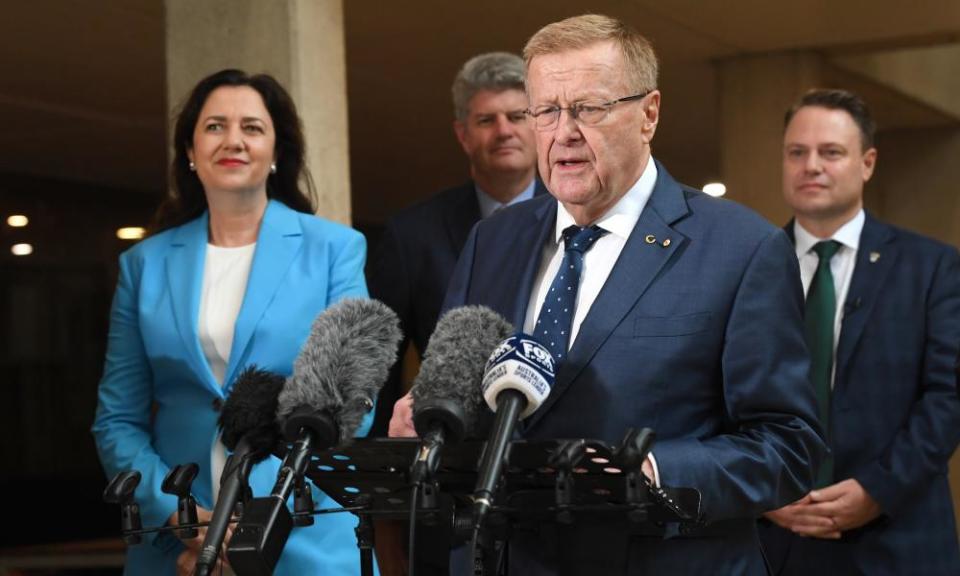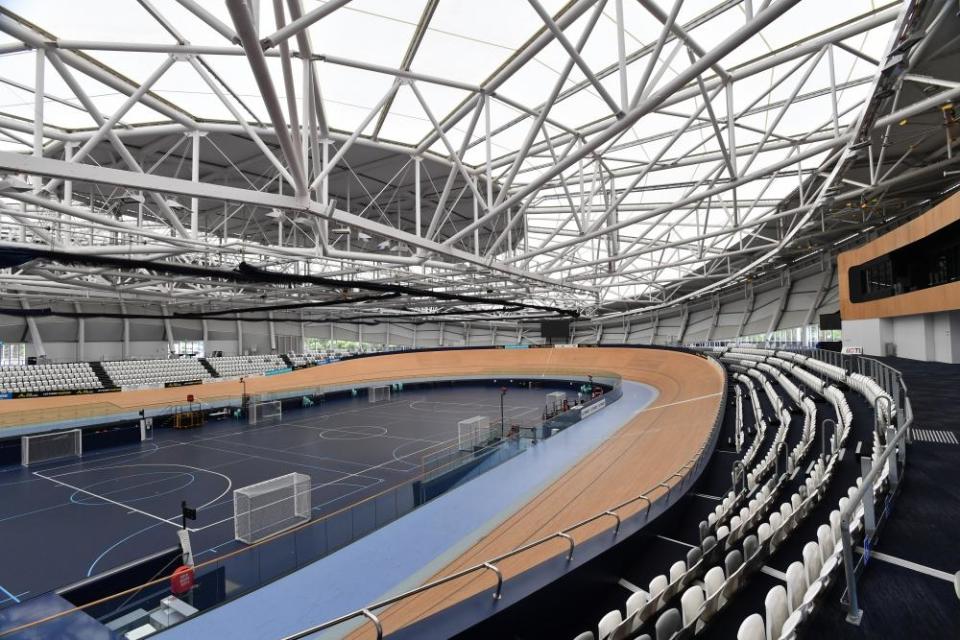Are the Olympics heading to Australia again? Key questions about Brisbane 2032 answered

On Wednesday, the International Olympic Committee named Brisbane as the “preferred partner” to host the 2032 Olympic and Paralympic Games. What does this mean? Should you book your hotel room now? How much will this cost Australian taxpayers? We have the answers.
What has happened?
On Wednesday evening (AEDT), the executive board of the IOC met virtually. On the agenda was a discussion led by the organisation’s Future Host Summer Commission, which had been considering potential candidates to host the 2032 Games. The Commission recommended Brisbane, and the IOC board accepted its recommendation.
Related: Brisbane chosen as 'preferred partner' to host 2032 Olympic Games, IOC says
Does this mean Brisbane will host the Games?
Not quite. The IOC will now enter exclusive negotiations, what it has termed “targeted dialogue”, with the Queensland bid. But it is not yet a done deal; other cities bidding for 2032 can remain in the race, and there are no guarantees that the next phase of discussions between Brisbane and the IOC will go smoothly. Until the IOC membership formally vote to accept a recommended host, anything is possible.
Is the bidding process different this time?
Indeed. In 2019, the IOC overhauled its selection process, with IOC president Thomas Bach suggesting that the old system led to “too many losers”. Under the prior approach, cities spent millions of dollars promoting their bids and lobbying IOC members. Sometimes competing bids remained neck-and-neck until right before the final decision. Last-minute lobbying by the Russian president, Vladimir Putin, reportedly tipped the balance in favour of Sochi during bidding for the 2014 Winter Olympics. There have also been concerns about undue influence. Bach described the new approach as “less political” and “more sober”.
Are there any losers in this?
The new approach lends itself to a greater focus on the technical merits of bids and less on their political clout. But not everyone is happy. The announcement on Wednesday will be a major blow to other potential 2032 hosts; Qatar, Indonesia, India, Hungary, Germany and China had all expressed interest. While under the previous model they would have had more time to develop their bid and lobby for support, they are now all but out of the race – before it has even been run.
Related: Australia's Olympians to be encouraged to take vaccine but Games will be 'safe'
Concerns have also been raised about a conflict of interest; Australian Olympic Committee president John Coates is on the IOC executive and chaired a working group in 2019 that led to the new model being adopted (which ultimately favoured Brisbane). On Wednesday, Bach was adamant that Coates had no involvement in the Future Host Commission’s decision, and Coates says he recused himself from the discussions. Guardian Australia is not suggesting that there was any impropriety.
What happens next?
The IOC will now work directly with the Brisbane bid team to sort out the nitty-gritty detail. Once the paperwork is in place and the Queensland government have provided the IOC with the relevant guarantees, the IOC will put the bid forward for a yes or no vote from IOC members (ie national Olympic federations). While that is typically a formality, its timeframe is uncertain – the IOC “Sessions”, as they are known, typically occur on the sidelines of the Games in Olympic years. But with the uncertainty around Covid-19, it is unclear whether the Brisbane bid will get the green light in July.

Is there any concern over the cost of hosting?
The Olympic Games are synonymous with cost overruns, white elephant stadiums and grumpy taxpayers. The London 2012 Games had an estimated A$18bn price tag. The IOC says that sky-high hosting costs are a thing of the past. By focusing on bids with existing infrastructure, investing billions of its own money and leveraging commercial sponsors, the IOC is aiming for cheap Olympics and happy host cities. The AOC has publicly stated that the 2032 Olympics, if held in Brisbane, will be cost-neutral.
Related: 'No cheering': Tokyo Olympics fans asked to stick to clapping during torch relay
What makes the Brisbane bid so attractive?
In many respects, Brisbane is the perfect bid. Australia is internationally respected for its ability to competently host major international events. Many still have fond memories of the Sydney 2000 Olympics. The Sunshine State hosted the 2018 Commonwealth Games, which left athletes raving about their positive experiences. Between Brisbane, the Gold Coast and the Sunshine Coast, Queensland already has most of the infrastructure it needs to host the Olympics. That minimises cost and any risk of construction delays. The only major proposed new development would be a 50,000-seater Brisbane Olympic Stadium, although the Gabba and Gold Coast’s Metricon Stadium have been flagged as exiting alternatives. Add in the warm climate, nearby tourism destinations and the relaxed Queensland way of life, and the merits of the bid are clear.
What happens if the Tokyo Olympics is postponed?
The spectre of a cancelled Tokyo Olympics looms over these discussions. While the IOC insists that the postponed 2020 Games will proceed in July, the pandemic stands between it and successfully hosting such a major global event. If a Covid-19 surge leads to a late cancellation, the IOC and Japanese government would be left with hard choices to make. 2022 is already a crowded global sporting calendar, with the Winter Olympics in Beijing, the Commonwealth Games in Birmingham and the Fifa World Cup in Qatar.
Further postponement would cause havoc with qualification processes for the 2024 Olympics in Paris. The French are unlikely to be willing to cede their spot in the post-pandemic spotlight. With 2028 already awarded to Los Angeles, the cancellation of the Tokyo Games would increase speculation that it might be postponed to 2032. While the IOC and Japanese government say they have no such plans, they said the same about postponing the Olympics last year.

 Yahoo Sport
Yahoo Sport 





































